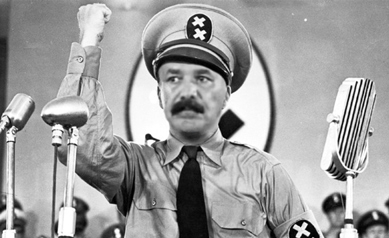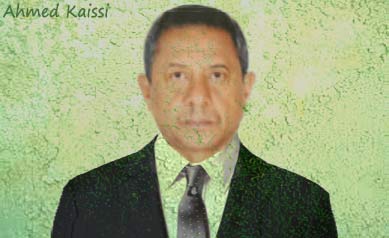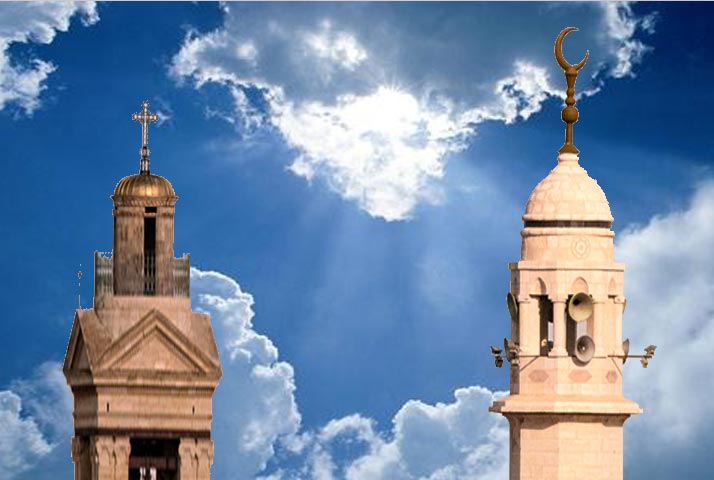Nsu nHna, nHna nsu: We Are One And The Same

Several studies conducted on dictatorships of the last century indicate that there is a method to how dictators stay in power and how they ultimately fall[i]. Dictators stay in power by keeping the balance of what Sergei Guriev and Daniel Treisman call, “the dictatorship equilibrium[ii].” In some of these studies the most common types of dictatorships referred to were interchangeably old-fashioned and modern or harsh and soft.
Although both types of dictatorships use similar techniques, there is a significant difference on how ferociously their dictatorial techniques are applied. For instance, in the old-fashioned type, repression is harsher, independent sources of information are forbidden, citizens get arrested for no specified reason, and independent political institutions or civic liberties are not allowed. No constitution, no concrete national agendas, and/or no fiscal plans exist.
Even by the strictest definition of dictatorships Eritrea is indeed run by an old-fashioned and harsh dictatorial rule.
Regardless of the obviousness of the Peoples’ Front for Democracy and Justice (PFDJ)’s dictatorial nature, many Eritrean intellectuals try to absolve the leadership from responsibilities by fabricating facts or supplying it with rationale. For instance, Professor Redie Bereketeab, Senior Researcher and Associate Professor at the Nordic Africa Institute, exalts the dictator’s raison d’être and masks the real reason for its brutality with the likes of following statements.
“Ethiopia’s rejection of the [Badime] ruling, its constant threats to overthrow the Eritrean government and its concerted efforts to isolate Eritrea heightened the country’s state of insecurity and stoked constant fears of war. This in turn led to tight control of citizens, intolerance of deviant views, closing of private media, etc. The divisions within the leadership in 2001 were also harshly dealt with. Everything was geared towards safeguarding the nation. Under the circumstance, the youth have chosen to leave the country in growing numbers[iii].”
In addition to the thousands of Eritrean lives lost in the last 16 years alone, if the current trend of systematic harassment of the people and refugee exodus continue for additional 2-5 years, there will be little or no reason left to “secure” and “develop” the nation for them. The purpose of defending a nation ought to be defending the people from death and humiliation. How then can “it is all for the defense of the country” be justified while the very people supposed to be defended are denied of their basic dignity and God-given right to exist?
Internal or external threat as a legitimating tool for dictatorial control is not original to PFDJ. Hitler had his Jews, Mussolini his Russia, Stalin his German, Pol Pot his Vietnam, Saddam his Iran, Kim Il-sung his South Korea, and many more examples with textbook similarities with what PFDJ claims is its main reason for turning the nation into one giant prison. PFDJ is dictatorial, and it is consuming the nation. If you must continue supporting PFDJ for whatever reason, at least consider the following and decide whether it is worth it to you or your country.
There was a comparative statistic posted on awate.com by Sal Younis[iv] not long ago. In that report Eritrea fared very much at the bottom in almost all indexes. In addition to those well-known indexes I urge you to also consider the following:
– The Eritrean refugees of the mid 60s still lingering in refugee camps.
– The alarming rate of refugee exodus including children and young adults.
– Military training camps turning into torture chambers of forced recruits.
– Antagonized neighbors resulting in national isolation.
– Most, if not all, scorned or defied world powers resulting in a sanctioned state.
– Failed to strengthen national unity on several occasions.
– Deteriorating quality and quantity of the education system.
– Fearful and depressed society, be it from the so called “threats” or from the government itself.
– No tangible economic activity except to dig for natural resources with, some suspect, forced labor.
It is a long list of negatives, but the most ridiculous of all is this: farmers are being paid with a check for their hen worth only 3.50 Nakfa!
Many Eritreans, at least those I know, seem to realize this government needs to change or be changed, but the difficulty most of them express and what I have gathered from the discussion forum at awate.com is, to “replace it with what?”
Dear opposition: Are you really the squabbling old men we sometimes imagine you to be?
In the normal state of affairs dictatorship precedes opposition and there is no confusion identifying which is which. Citizens get frustrated, organize, and eventually become “the opposition” and challenge the authority until it is reformed or replaced.
However, in the Eritrean context what we have is unique. Depending on one’s definition of what a political entity is, it is estimated that there are over 15 political organizations, parties, groups, and alliances actively opposing the Eritrean dictatorship[v].
One of the major sources of confusion among the so-called “silent majority” and some supporters of PFDJ is based on lack of understanding or knowledge of these oppositions’ identities and what they represent. Most of them are wondering whether these oppositions are opposing the dictatorship on appraisal or jockeying for revenge.
Ethiopia, with reference to Eritrea, being the most natural and strategic location where a resistance could be organized, became necessary for the opposition to camp in and solicit support from. Unfortunately, this camping in Ethiopia has become a liability for the opposition and a reason for uncertainty for many Eritreans. Among those uncertainties is the ever present suspicion of Ethiopia trying to annex Eritrea or Asab, the relatively recent deportation of thousands of Eritreans from Ethiopia, the Badime war, and Ethiopia’s refusal to abide by the EEBC ruling.
Farther complicating matters for the opposition parties is also lack of unity among them. For developing a healthy and vibrant political establishment a certain amount of divergence may be useful, but the opposition needs to make extra effort to build the citizens’ confidence that it will be or it is a united front, at least on major national issues.
However, with all the hurdles piled up against it, the opposition has nonetheless registered some victories with its continued creation of awareness about Eritrean people’s predicament. To score more victories, the opposition should present itself in such a way that the average Eritrean can understand and relate, be inclusive, show intent to forgive instead of to seek retribution, be open and inviting, and clear any ambiguity about deals with Ethiopia or anyone else in Eritrea’s behalf.
The recent agitated confrontation with Mr. Mesfin Hagos in the UK[vi] is one bad example which should be avoided in the future. The opposition should understand that it is not the de-facto court of Eritrea who can sentence whomever it suspect is guilty of a crime. The primary task of all opposition parties should be to unite all Eritreans and convince the Eritrean people that their aspirations are beyond the idea of one side coming out the winner and the other the loser. There will be a law and a court of law someday in Eritrea. There will be victims and their families who will demand justice, and they should be granted that justice that day. However, the opposition does not have that mandate until such time a that it is the elected Eritrean government.
Our Opposition in the House
Although opinions of individuals on the awate.com forum are not necessarily representative of their respective groups, when someone assumed to be “an opposition” labels those presumed supporters of PFDJ as “heartless, brainless, evil, unfeeling, equally responsible as those pulling the trigger, and they will pay the price,” not only infuriates and entices PFDJ supporters to respond in an equally useless manner, but also it feeds into the fear of the “revenge minded ELFites” that has been quoted several times in the same website.
Does the opposition want all PFDJ supporters to continuously behave defensively or present them with the “better alternative” and expedite the removal of tyranny that is wreaking havoc in Eritrea today? The agonizingly slow or no reception of the opposition by those who, at least, understand the current government has lost its zeal, is mostly based on these and similar uncertainties. This is not meant to point a finger at any group or individuals, but those in the opposition are naturally obligated to explain how the opposition or the alternative to the current political system and leadership is the better alternative. That is an enormous responsibility, and it should be carried out without willy-nilly emotional outbursts.
How did you become an opposition member? How and why did you join your respective organizations or parties? Was it because someone insulted, threatened, or disrespected you badly enough? The most likely scenarios are either you were impressed by the idea that party advanced, or you met a member of that party who convinced you of their conviction, or a close family or a friend joined ahead of you and you followed suit, or a combination of these and similar factors.
No one is born with their ideas and convictions pre-formed. No one is superior or inferior for believing this instead of that. There was a continuous process that led you to where you are today, and that process will change you yet farther beyond. Except, perhaps, for a very few who are at discussion forums for personal vendetta, most discuss issues for some common basic reason: the wellbeing of Eritrea and its people. With that framework, why not respect one another while discussing an issue of such importance?
Recently, a certain Awatista, Nitricc[vii], presented some tidbits directed at “the opposition,” and he never received any answers but the usual pejorative remarks instead. What he said was his reasons for not jumping wagon “to the other side” were of the following nature:
What alternative government do you have in mind?
What programs do you have in place so far before changing the government?
Who is doing the changing (who are you)?
What price do you expect Eritrea will pay for this change?
Are you an ELFite seeking revenge?
Will you go after the current governing body for retribution?
How foreign influenced are you?
Another commenter who goes by the name Saba[viii], as a continuation to her repeated appeal to find some information about the opposition’s identity, progress, and intent by asking several simple questions at different times, had the following fill-in-the-blank study guide like questionnaire recently.
- Party of the opposition I belong to…………………
- Post-Isayas vision of my party is……………….
- My personal post-IA vision is…………………….
Neither Nitricc’s nor Saba’s questions are derogatory, rejectionist, spiteful or evil intent in any shape or form. These are valid questions and opinions of many Eritreans. If you consider yourself an opposition, then these are exactly the kind of questions you want Eritreans to ask.
To be fair people grow too familiar with each other’s opinions and inclinations, and they usually address each other according to what each one believes is the other’s “all-time position,” but moments like these ought to be the reason for the passionate discussion. Nitricc, one of the most notorious supporters of PFDJ, started a comment with “I don’t mind change, but…” and you missed it! Most of your questions to one another don’t seem too difficult to answer, please answer them honestly and politely regardless of who is asking or why.
Conclusion:
Supporters of PFDJ and the “silent majority” need to make a genuine appraisal of the opposition and understand the forces it has to deal with. Camping in Ethiopia is a necessity. They have neither the power nor the authority to make any national deals with anyone. The fear that Ethiopia is trying to install a puppet government should not be taken out of proportion. Any every country would like to have a neighboring government that is sympathetic with its interests. That by itself shouldn’t be treated as an evil intent and allow it become the reason for self-destruction.
It is possible that the opposition may feel it needs to keep some details of its strategy confidential, but it must unite and draft a constitution based on the elements already agreed upon leaving points of contention for public discussion and resolution at a later time.
If the opposition is determined to heal the nation and bring an end to the vicious cycle of mutual mistrust and suspicion it must also consider extensive reform as one of the potential solutions. By refusing to entertain the idea of reform, not only does it feed into the “revenge seekers” psychological threat, but also it will be making the grave mistake of wasting an opportunity to unite all Eritreans once and for all. PFDJ may have changed a great deal from what EPLF used to be, but EPLF’s legacy is every Eritrean’s legacy. Its dignity and rightful place in the history of the struggle for independence must be preserved.
What supporters of PFDJ should realize on the other hand is that time and again every incident of atrocity by the dictatorship is being rationalized with “it is against the Ethiopian threat.” In the meantime, its propaganda outlets are labeling those trying to expose its dictatorial nature as “Weyane,” “sellout,” and “unpatriotic.” That is neither true nor fair, and you don’t have to be part of it. Not just only PFDJ but in any and all dictatorships of the world this type of real or imagined threat is one of the methods dictators use to stay in power. There are many Eritreans being wronged by this government as you read this, and those who were lucky enough to have a chance to speak out are speaking to you through the COIE report, awate.com, and many other outlets. They may not be skilled diplomats or gifted orators, but they are your other half and I hope you listen and begin to find a better way together.
It is up to you, supporters and oppositions alike, to come up with ideas that will unite and harmonize the people. “United we are stronger” is not a cliché; it is a fact. How great Eritrea will become is not dependent on what kind of political ideology it adapts, but on the successful establishment of a united, peaceful Eritrea and free Eritrean people.
“Our greatest glory is not in never falling, but in rising every time we fall”. Confucius, mid 500 B.C.
Fanti Ghana.
fantighana@hotmail.com
References:
[i] Why dictatorships survive – and what destabilizes them; an abstract.
Additional Readings:
“How do dictatorships survive?”
“Dictatorships Often Survive with Local Support”
“The Mind of a Dictator,” Exploring the minds of psychopaths and dictators.”
[ii] “How Modern Dictators Survive,” Sergei Guriev, Professor of Economics, Sciences Po (Paris) and Daniel Treisman, Professor of Political Science, UCLA. February 2015
[iii] “Eritrea’s Refugee Crisis And The Role Of The International Community,” Professor Redie Bereketeab
[iv] “Eritrea 2015: Feels Like Eritrea 2002”
[v] “The Smashed Eritrean Wristwatch”



Awate Forum